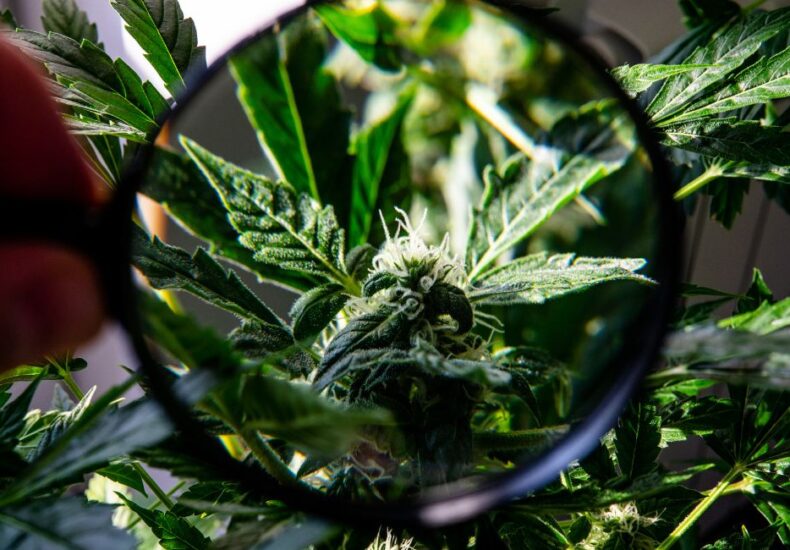
Understanding THCa Flower Safety
Understanding THCa Flower Safety
The world of cannabis is vast and varied, with numerous compounds contributing to its effects and benefits. One such compound gaining attention is THCa, or tetrahydrocannabinolic acid. As the precursor to THC, the psychoactive component in cannabis, THCa offers unique properties and potential benefits. This article explores the THCa flower safety, providing insights into its use, benefits, and potential risks.
What is THCa?
THCa is a non-psychoactive cannabinoid found in raw and live cannabis plants. Unlike THC, THCa does not produce a high when consumed. It is only through decarboxylation, a process involving heat, that THCa converts into THC. This transformation is why smoking or vaping cannabis results in psychoactive effects.
Potential Benefits of THCa
Research into THCa is still in its early stages, but preliminary studies and anecdotal evidence suggest several potential benefits:
- Anti-inflammatory Properties: THCa may help reduce inflammation, making it a potential option for those with inflammatory conditions.
- Neuroprotective Effects: Some studies indicate that THCa might offer neuroprotective benefits, which could be beneficial for neurodegenerative diseases.
- Anti-emetic Properties: THCa has shown promise in reducing nausea and vomiting, particularly in chemotherapy patients.
- Appetite Stimulation: Like THC, THCa may help stimulate appetite, which can be beneficial for individuals with appetite loss.
Safety Considerations for THCa Flower
When discussing the safety of THCa flower, several factors come into play. Understanding these can help consumers make informed decisions about its use.
Quality and Source
The quality of THCa flower is paramount. Consumers should seek products from reputable sources that provide third-party lab testing. This ensures the product is free from contaminants such as pesticides, heavy metals, and mold.
Consumption Methods
THCa can be consumed in various ways, each with its own safety profile:
- Raw Consumption: Consuming raw cannabis leaves or flowers preserves THCa without converting it to THC. This method is non-psychoactive and considered safe for most users.
- Juicing: Juicing raw cannabis is another way to consume THCa. This method retains the cannabinoid’s properties without the psychoactive effects.
- Topicals: THCa-infused topicals can be applied to the skin for localized relief without psychoactive effects.
Potential Risks
While THCa is generally considered safe, potential risks should be acknowledged:
- Allergic Reactions: Some individuals may experience allergic reactions to cannabis or its compounds.
- Contamination: As with any plant product, contamination with harmful substances is possible if not sourced from reputable suppliers.
- Drug Interactions: THCa may interact with certain medications, so consulting a healthcare provider is advisable.
Case Studies and Research
Several studies and case reports have explored the effects and safety of THCa:
- A 2013 study published in the British Journal of Pharmacology highlighted THCa’s anti-inflammatory properties, suggesting its potential in treating inflammatory conditions.
- In 2017, a study in the Journal of Neuroimmune Pharmacology examined THCa’s neuroprotective effects, indicating its promise in neurodegenerative disease management.
- Anecdotal evidence from patients using THCa for nausea and appetite stimulation has been positive, though more clinical research is needed.
Legal Considerations
The legal status of THCa varies by region. In some areas, THCa is considered legal as it is non-psychoactive. However, once decarboxylated into THC, it may fall under different legal restrictions. Consumers should be aware of local laws and regulations regarding cannabis and its derivatives.
Conclusion
THCa flower presents an intriguing option for those seeking the benefits of cannabis without the psychoactive effects. While research is ongoing, the potential benefits of THCa, such as anti-inflammatory and neuroprotective properties, are promising. Safety considerations, including product quality and consumption methods, are crucial for consumers. As with any supplement or medication, consulting with healthcare professionals can provide personalized guidance. As the understanding of THCa continues to evolve, it holds potential as a valuable component in the cannabis landscape.
- From Skepticism to Trust: How Goldco Reviews Transformed My Mind
- DIY Teeth Lightening: How to Attain a Spectacular Smile
- Just how to Maintain Your Bright Smile: Post-Whitening Treatment Essentials
- ** BPC 157 Peptide: A Comprehensive Guide to Its Advantages and Makes use of **.
- ** Opening the Recovery Possible: The Science Behind BPC 157 Peptide **.